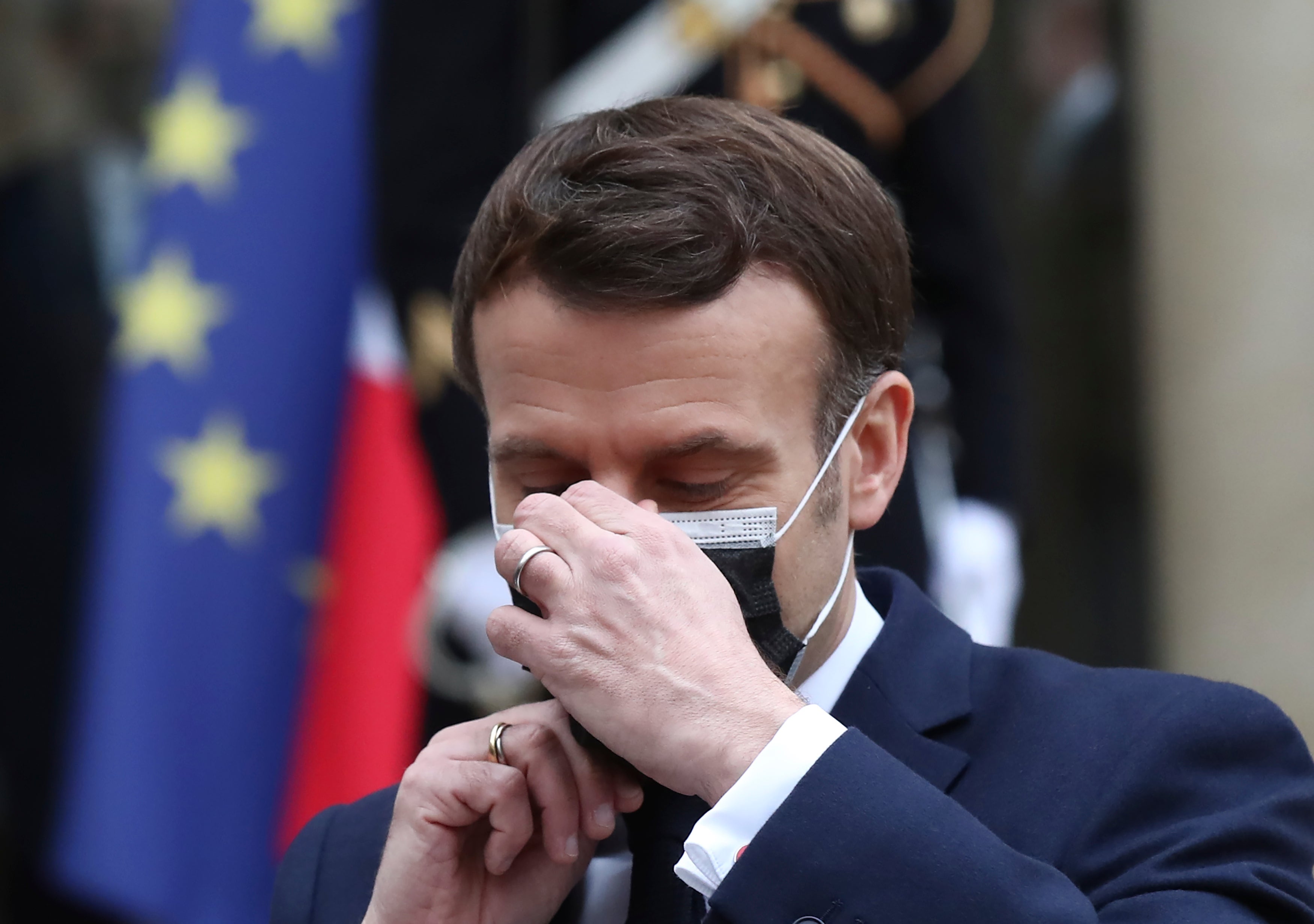France says no AstraZeneca virus vaccine for people over 65
President Emmanuel Macron says France will only give the AstraZeneca coronavirus vaccine to people under age 65

France will only administer the AstraZeneca coronavirus vaccine to people under age 65, President Emmanuel Macron said Tuesday after the government's health advisory body cited a lack of sufficient data about its effectiveness in older people.
The decision could shake up the French vaccination strategy, because the country has prioritized nursing home residents and people over 75. France had counted on the AstraZeneca vaccine for a large part of its upcoming inoculations, until the company announced delays affecting countries around Europe and the world.
“For this AstraZeneca vaccine, we will not propose it to those older than 65,” Macron told TF1 television Tuesday night. Instead, the vaccine the British-Swedish company developed with Oxford University will be given to medical personnel under 65, individuals with health vulnerabilities or those facing high exposure, he said.
The French practice differs from the guidance given by the European Medicines Agency, which authorized AstraZeneca’s vaccine for use in all adults throughout the European Union on Friday, amid criticism the bloc is not moving fast enough to vaccinate its population.
Health authorities in Germany and other countries have raised concerns that the Anglo-Swedish company didn't test the vaccine in enough older people to prove it works for them, and indicated they would not recommend it for people over 65.
In guidance issued Tuesday, France’s High Authority for Health said it “recommends that the vaccine ... be given preferentially to people under 65.” It says it will review this guidance when AstraZeneca has more data on the vaccine’s effectiveness in older people.
The French government depends on the High Authority’s guidance and is adapting its strategy based on the announcement. Health officials have said they constantly adapt vaccine strategy based on availability of doses, demand and regulatory guidance.
Macron said France still aims to offer the vaccine to anyone who wants it by the end of the summer.
Macron met Tuesday night with international vaccine producers and major pharmaceutical companies that have an industrial site in France to discuss ways to “quickly” and “significantly” boost short-term production capabilities in France and in Europe. The meeting came amid criticism of the EU's handling of its collective vaccine strategy across the bloc's 27 member nations.
Macron said he sent a scientific team to Russia several weeks ago to study that country's vaccine efforts and “the exchanges were very positive." The French leader noted early results of an advanced study of Russia's Sputnik V published in The Lancet medical journal that showed the vaccine was about 91% effective.
Macron said that if and when the European Medicines Agency decides approve the Russian vaccine, it will not be a “political decision. It's a decision that is scientific.”
France has seen some of the world's highest numbers of confirmed virus cases and deaths, which have been steadily rising in recent weeks.
___
Follow AP coverage of the coronavirus pandemic at:
https://apnews.com/hub/coronavirus-pandemic
https://apnews.com/hub/coronavirus-vaccine
https://apnews.com/UnderstandingtheOutbreak
Bookmark popover
Removed from bookmarks